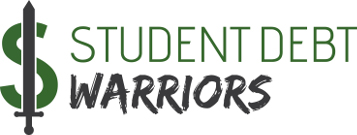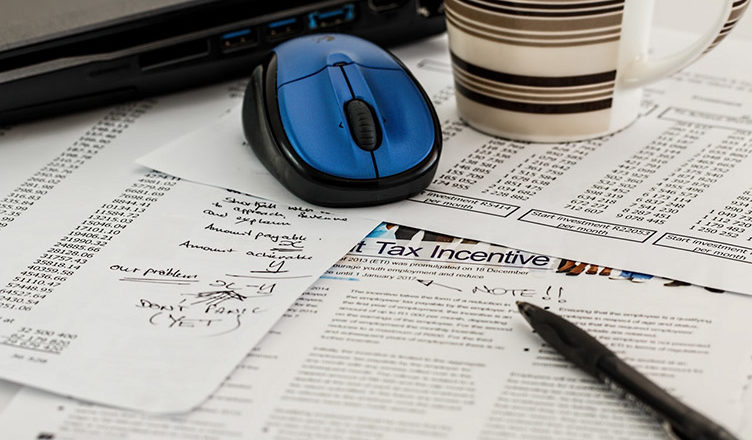I know that a lot of people dread tax season. I’m not sure why—maybe it’s nerves from having to deal with Uncle Same, maybe it’s a fear of being audited, maybe they just know that they’re going to wind up owing money to the government. But I’ve always looked forward to tax season for one simple reason: Getting a tax refund.
Of course, tax refunds aren’t guaranteed, but they are one of life’s simple pleasures. But if you use a refund correctly, it can really help you get your finances on track—and even help you pay back your student loans.
Speaking of taxes, don’t forget to claim all of the deductions you’re entitled to, especially the ones related to having student loans!
Tax Refunds Are Not Free Money
People tend to think of tax refunds as being free money. They see the check they get back from the government as something that wasn’t theirs to begin with, a gift of sorts. And because of this view, they often spend their tax refund as though it were a gift, on things like vacation, or to buy a new gizmo, or as the younger brother of one of my friends did, a chrome exhaust pipe (which I will just never understand).
Need help keeping track of your student loans? Download our free Student Loan Spreadsheet!
But the reality of the situation is very different. If you get a tax refund (whether state or federal) you aren’t receiving free money; you’re being given your own money back, because you had given too much to the government over the course of the year. It’s money that you worked for, money that you traded hours or weeks of your life to earn. Money that can make your life a lot easier, if you know how to use it.
Smart Ways to Use a Tax Refund
Though it’s pretty obvious that I’m going to advise you to use any tax refund you get to pay down your student loans, there are plenty of other responsible ways to use the money, and depending on your personal financial situation, you may want to prioritize these things over paying down your student debt. These are the two things I would prioritize over paying down your student loans with your refund check.
Establish an emergency fund: Common advice from financial planners and consultants is that every person should have an emergency fund with enough money in it to cover three to six months’ worth of expenses.
If you’re a college grad living at home paying no bills other than a cell phone bill and student loans, then your emergency fund should include enough money to cover three to six months of those bills. If you live on your own and pay rent, have a car, buy your own food, etc., then your emergency fund should cover that extended list of expenses. (Still not sure how much you need? Check out our free emergency fund calculator to get a number to aim for!)
The goal is to make sure that, should you lose your job or otherwise hit a hard spot financially, you have money to fall back on. Because of this, the money should be saved in a regular old, savings account or other low-risk account, not an investment that could lose value right as you need it. If you don’t have an emergency account, it’s probably wiser to use your tax refund to start one than it would be to use it to pay down your student loans.
Pay down high-interest debt: Student loans suck for sure, but the one good thing about them is that they typically carry lower interest rates than a lot of other types of debt. If you carry credit card debt, a high-interest car loan, or some other kind of debt that has a higher interest rate than your student loans, then it is smarter for you to pay down that high-interest debt first.
Invest for your future: If you’re a college student or a recent grad, I know that you aren’t thinking too much about investing your money, especially if you’ve got student loan debt to worry about paying down. But that’s a mistake: Being young means that you’ve got a lot of time on your side, which can help you grow your money and reach your long-term financial goals.
Having an emergency fund is important because it helps you to battle unexpected emergencies or dips in income. Without one, you may find yourself relying on a credit card to get by, which only gets you stuck in debt.
That’s why, even if you have credit card debt, you should first use any savings to build an emergency fund. Then, once you’ve built your emergency fund, you can funnel additional savings into paying down your high-interest debt. Once you’ve done both of those, you should turn your attention to investing for the future and paying down your student loans (which typically have much lower interest rates than expensive credit card debt).
And Finally, Why You Should Pay Down Your Student Loans with Your Tax Refund
It took us a while to get here, but everything we just talked about is important to keep in mind. But finally, without further ado, we can talk about why you really want to use your tax refund to pay down your student loans balances.
And I can say it in just four words: It’ll save you money!
Any time that you pay down your student loan balance, you are saving yourself money over the course of the loan because, ultimately, you will be paying less interest. Whether your tax refund is a few hundred dollars or a few thousand dollars, it can go a long way in reducing the total amount of interest that you’ll pay over the life of the loan (and it’ll reduce the amount of time that you’ll spend paying back your loans, too).
If you do decide to use your tax refund to pay down your student loan balances, here are a few tips so that you do it as effectively as possible.
First, make sure you are keeping track of your student loans with a student loan spreadsheet. It’ll make the whole process a lot easier and more organized.
Second, choose a student loan repayment strategy to follow. Having any strategy will make your job of paying down your debt much easier than having no strategy at all.
And third, make sure you talk to your student loan servicer so that you know your extra payment is applied correctly.
Extra payments to student loans are usually applied like this: They cover any outstanding fees, then unpaid interest, and then finally are applied to principal. But if you have multiple loans with one servicer, then a large extra payment is often split between the loans. If your goal is to pay off a certain loan (either because it has a higher interest rate, or a lower balance or for whatever reason), contacting your servicer by phone will make it easier for you to ensure that the payment is actually applied according to your wishes.
Or You Could Just Adjust Your Withholdings So You Have More Money In Your Paycheck Each Month
This is something I had initially decided to leave out of the post, but after someone left a comment asking about it, I decided that I should address it. (Thanks Liz from Open Mouths Get Fed!) Everything we’ve discussed above is a great way for you to spend your tax refund, but it is by no means the most effective way of using your money.
If you want to be the most efficient and save the most money as you pay down your student loans, then you should adjust your tax withholdings so that you get as close to a $0 tax bill as possible. This would mean that you don’t owe Uncle Sam any money, but you also won’t get anything back in the form of a tax refund.
For those of you who typically get a nice tax refund each year, this means you’d go without it—but in exchange, you’d have extra cash in your paycheck each week. And by putting that cash to use paying down your student loans over the course of the year (instead of waiting and making a lump sum payment all at once come tax season) you’ll save even more money by slashing away at the principal.
Think of it this way: When you overpay on your taxes, you’re essentially giving the government a loan. A loan which they pay no interest on (can you imagine?), and which benefits them while doing absolutely nothing for you. By getting your tax bill as close to zero as possible, you are freeing up that money which you can use to pay down your own debt, or that you can use to invest and grow for the future. Either is better than letting it sit in a government account year over year.
Now I don’t know why, but a lot of people get overwhelmed when you start talking about adjusting their tax withholdings. Maybe they’re worried that they’ll do it wrong and wind up owing money come tax season. Maybe they like the sort of “forced saving” that paying too much in taxes does (which I completely understand). Maybe they know that they won’t appreciate an extra $20 or whatever in their paycheck each week, but that an extra $2,000 at the end of the year adds some pip to their step.
Whatever the reason, what you do is ultimately up to you. Whether you fix your withholdings or leave them as is, just make sure you are putting that extra cash towards paying down you student loans and reaching your long-term financial goals, and you’ll be fine. One path might save you more money than the other path, but that doesn’t mean that either is right or wrong. They’re just different, and suited to different people.
The Bottom Line
I have an emergency fund established already, I don’t have any high-interest credit card debt to cover, and I’m already investing regularly throughout the year. So whenever I receive a tax refund, I immediately use it to pay down my student loans, knowing that it brings me one step closer to finally being free from the shackles of debt.
It’s something that I advise to everyone. Stop looking at your tax refund as free money and start looking at it as the powerful tool that it can be in helping you reach freedom from your student debt, and before long you’ll be one step closer to financial success.







Wouldn’t you save more if you decided to forego the refund, increase the allowances on your W-4 so that money comes in your paycheck, and then pay more on your student loan each month? Starting in January that’s a full year of interest you’re cutting.
Oh, absolutely. I had considered adding a note about that but decided against it for brevity’s sake. I’ll add it in now, thanks!
Hey! Thanks for the shoutout and link. The IRS has a W-4 withholding calculator people can use to figure out how many allowances to claim in order to break even when they file. I did a post where I walked through how to use it. Might be helpful http://openmouthsgetfed.com/2017/10/25/gimme-the-loot-giving-yourself-a-raise/